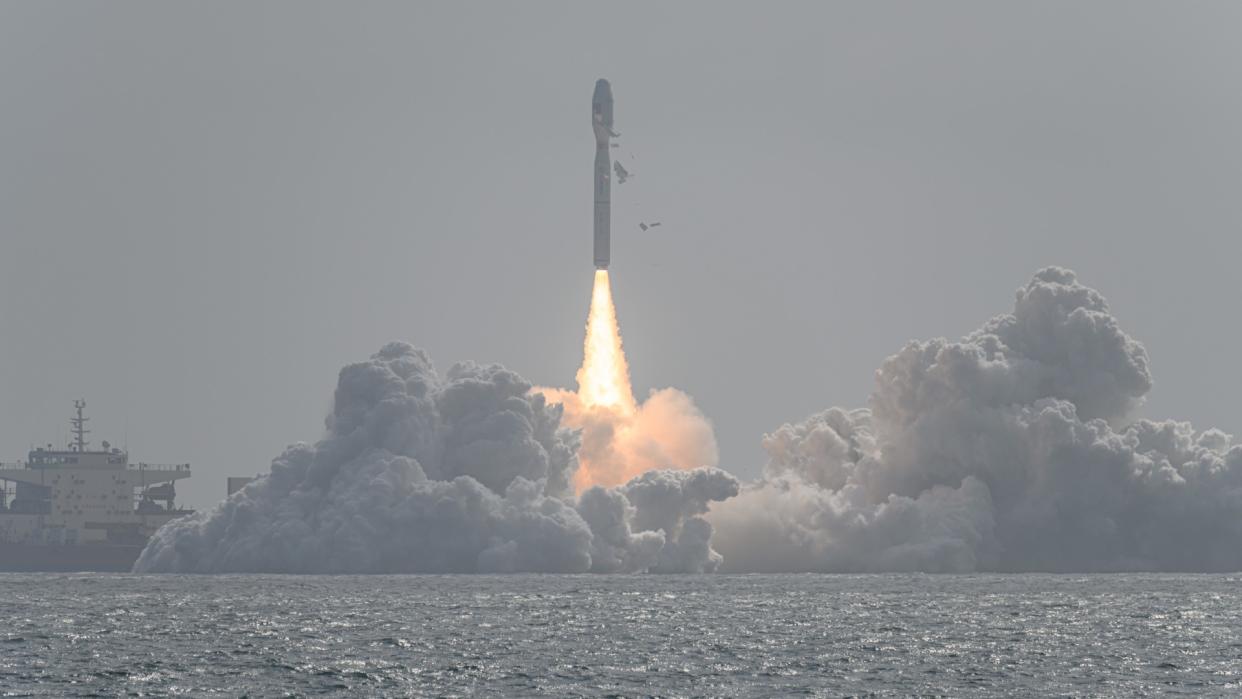China will launch giant, reusable rockets next year to prep for human missions to the moon

China plans to launch two reusable rockets in 2025 and 2026 in preparation for future crewed missions to the moon.
The upcoming launches are part of a new lunar program introduced by the state-owned China Aerospace Science and Technology Corp. (CASC), the main contractor for the Chinese space program, that will be "key" to China's goal of sending astronauts to the moon by 2030, SpaceNews reported.
Unlike rockets that China has used in the past, this pair will be completely reusable. This means they will be not only more sustainable but also more cost-effective, since they won't have to be built from scratch for future missions.
Related: China's new moon rocket could launch as soon as 2027
The rockets, which CASC did not refer to by name, include a 13-foot (4-meter) diameter rocket and 16-foot (5 m) diameter rocket. The larger rocket may be a variant of the planned Long March 10, a 302-foot-long (92 m) launch vehicle that has the capacity to send 27 tons into translunar orbit, SpaceNews speculated. Long March 10 will also be responsible for sending the crew of the newly-announced Mengzhou spacecraft to the moon in 2030.
RELATED STORIES:
— Watch China launch Smart Dragon-3 rocket from the sea (video)
— China names the spacecraft that will put its astronauts on the moon (video)
— China to debut new Long March rockets in 2024
A potential test launch of Long March 10 could carry a next-generation crew capsule into Earth orbit as soon as 2025, fitting with the newly announced reusable rocket timetable, SpaceNews added. Details about the second reusable spacecraft, and the 2026 launch, have not yet been announced.
While several Chinese companies are currently developing reusable rockets, the new launch vehicles from the state-owned CASC "would greatly boost China's options for launch and access to space" by competing with the country's different commercial rocket companies, SpaceNews reported.
Leading up to next year's potential launch, CASC successfully "completed a vertical take-off and landing hover test" and "achieved a key technological breakthrough in reusable rockets" in 2023. Representatives from CASC said the "overall progress [of the rocket project] is very smooth," according to a translated article from the state-owned news outlet Science and Technology Daily.

